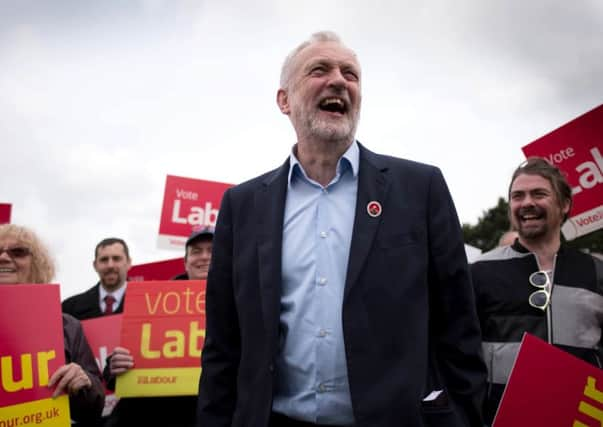David Behrens: History repeats itself as farce for Labour in grip of the hard left


Until that day arrives, seeing Jeremy Corbyn’s Labour party pulling off the political equivalent will have to do.
Corbyn’s navigation of the political road to Downing Street has been as bumpy as a man pushing a washing machine up a flight of stairs.
Advertisement
Hide AdAdvertisement
Hide AdNo sooner had his campaign team decreed that cutting immigration would not be a priority in negotiating Brexit, than the British Communist Party decided to fall in behind him
At the same time, a poll put the Conservatives on course for a majority in Wales for the first time since the 19th century. And it was still only Tuesday.
Let’s leave aside the question of why there still is a British Communist party, so long after even the Russians abandoned the idea. The point is that Labour needs its support like an antelope needs a bicycle.
It was the Yorkshire veteran Roy Hattersley who made the obvious comparison this week with the election of 1983, although this time, he said, Labour’s position was worse. At least back then, everyone in the party wanted it to win, even if they expected it not to.
Advertisement
Hide AdAdvertisement
Hide AdToday, the generation of politicians who made up the last Labour government wants to see it gutted, Corbyn ejected and the previous order restored.
But Hattersley is wrong on one point: Corbyn’s potential successors, he says, should be speaking out and talking up what he insists is still the real Labour.
But is it? The movement that has the groundswell of public support now – albeit not enough to get it into power – is not the Labour of Hattersley and Kinnock, nor even of Blair, but that of Corbyn and the thousands who twice voted him in as leader. It took only a momentary gap in Labour’s Westminster defence to let them slip through and seize the moment.
This hard left has always been simmering below the surface, but 1983 reminds us that when it has been allowed to boil over, it has left a stink that has taken years to clear.
Advertisement
Hide AdAdvertisement
Hide AdThe cautionary tale from that year of Labour in Bradford is a casebook example.
It began when the party, riven with division even before Michael Foot succeeded Jim Callaghan, descended into outright warfare, and four of its leading lights defected to a party of their own, the Social Democrats.
I have always believed that had the SDP not thrown in its lot with the fading Liberals, it could have held the balance of power in 1983.
I remember going to one of its rallies in Leeds and hearing David Owen sound like a lone voice of reason in a sea of vitriol.
Advertisement
Hide AdAdvertisement
Hide AdLabour had put plants in the audience, who shouted “smear” at him when they heard something they didn’t like, but they piped down when they saw the crowd was against them.
A few miles away, it ended differently. The constituency of Bradford North had been represented at Westminster for two decades by a traditional socialist called Ben Ford.
But as hard-liners infiltrated the local party, he was deselected in favour of a Pat Wall, a Liverpudlian Trotskyist and long-standing member of Labour’s Militant Tendency, who wanted the abolition of the monarchy, the sacking of the generals, admirals, and, especially, judges.
Denied the support of a dithering Michael Foot, who declined to come down on either side, Ford stood as an independent, splitting the Labour vote down the middle and allowing a Conservative to take the seat for the first time since 1953.
Advertisement
Hide AdAdvertisement
Hide AdStill Labour’s hard left did not let go, and Wall was eventually elected in 1987, even after four years of abortive reform by Neil Kinnock.
I should note, as an aside, that the late Pat Wall was an extremely nice man, self-effacing and charming, as is Roy Hattersley. There the similarity ends.
Hattersley warned on Tuesday that unless it began talking straight away about “real Labour” and what it stood for, the party could be out of power for the next two or three general elections.
But with the militant left already on the front benches, an aberration we never came close to seeing in 1983, I fear it is already too late.